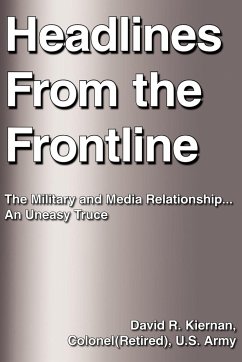A generation of journalists have come along who never experienced any of the systems of censorship and control of journalistic endeavor that were common in wars prior to the one in Southeast Asia. In such a situation, there is a premium on the need for understanding. If journalist and soldier are forever to be facing each other across from their respective barricades, at best observing uneasy truces, there needs to be a constant flow of communication designed to keep the aims clear and the issues current. When a military person succeeds well in doing that, we journalists naturally will be eager to say thanks. Such a one is Col. (Ret.) David R. Kiernan, who is Vice President of Strategic Communications at MPRI in Alexandria, Virginia. Through study and career-oriented academic research, Kiernan may be the best informed person today on the past, present, and future of the First Amendment and the military. He is among a new breed of Army Public affairs professionals. A graduate of Virginia Military Institute, he received a master's degree in mass communication from the University of South Carolina, was editor of the prestigious Infantry Journal at Fort Benning, Georgia and Pentagon Chief of Media Relations for the US Army during the Gulf War. This book will whet the Reader's appetite for several areas of study, especially about the censorship programs of World War I and II and the Korean War. The conclusion is thus inevitable and correct: censorship could not have changed the outcome of the Vietnam War, but press coverage of the war obviously did have an impact on public attitudes and support of the conflict. On this issue and many others, Kiernan has put together an excellent assessment and guide to understanding the military-media relationship. This work will assuredly become the handbook for both journalist and soldier, alike.
Hinweis: Dieser Artikel kann nur an eine deutsche Lieferadresse ausgeliefert werden.
Hinweis: Dieser Artikel kann nur an eine deutsche Lieferadresse ausgeliefert werden.








